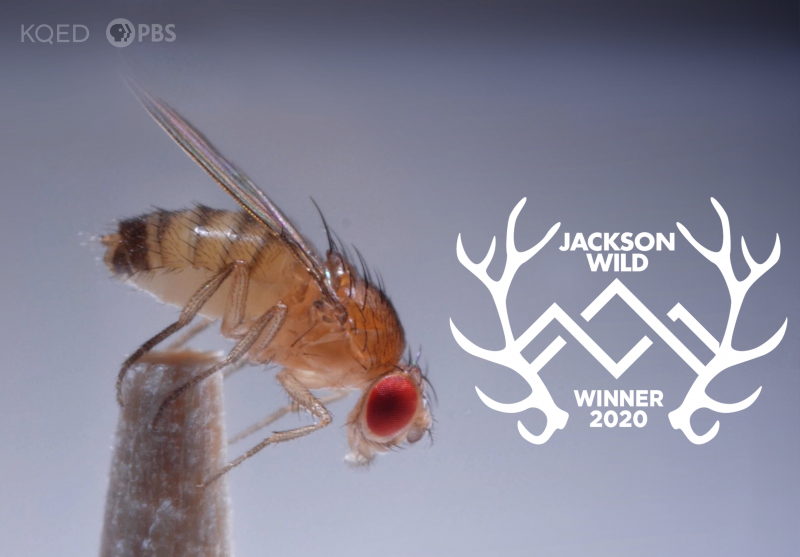San Francisco, CA -- KQED’s science and nature series, Deep Look, has won a 2020 Jackson Wild Media Award in their Animal Behavior Short Form category with its episode This Killer Fungus Turns Flies into Zombies. The four-and-half-minute film is all about a fungus that invades and kills flies, forcing them into a gruesome death pose so that it can shoot out its reproductive spores.
"What a surprise and honor!" says Gabriela Quirós, the film's producer. "Josh Cassidy, our series cinematographer, did a beautiful job capturing the timelapses of the fungus oozing out of the flies. And composer Seth Samuel created an extra creepy score for this episode. If you're looking for an early Halloween scare, this is it."
Deep Look would also like to thank the scientist they worked with, who provided Quirós and Cassidy with incredible access to her infected fruit flies. “We featured the work of Carolyn Elya, a researcher at Harvard. She has tremendous curiosity and energy,” says Quirós. Elya, who grew up in Danville, studied how the fungus invades and kills fruit flies while getting her Ph.D. at UC Berkeley. She is a postdoctoral researcher in the de Bivort lab at Harvard University, where Deep Look filmed.
The Oscars® of wildlife filmmaking, the Jackson Wild Media Awards celebrate excellence and innovation in science and nature storytelling. Their Animal Behavior Short Form Award was given to the film under 15 minutes that most effectively explores animal behavior in a new, fresh, imaginative or illuminating way. Deep Look was in competition with one of its other short films about kidnapper ants, as well as films about sea slugs produced by Curiosity Stream and about honeybee brains by Rebel Media Productions in association with Long Story Short Media.
More About Deep Look
Launched in October 2014, Deep Look is presented on the PBS Digital Studios YouTube network and has over 1.5 million subscribers, in addition to more than 180 million total views, making it KQED’s most successful web video production. Deep Look’s videos are shot in ultra-HD (4K) and use macro cinematography and microscopy to reveal small, hidden worlds in nature. Deep Look releases 20 new videos per year.
